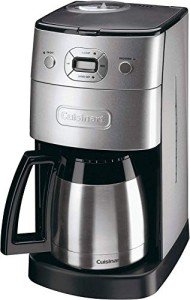What Experts From The Field Of Coffee Brewers Want You To Know
The Rise and Reign of Coffee Brewers: A Comprehensive Guide to Brewing Perfection
Coffee is more than simply a beverage; it's a ritual that many around the world treasure. Whether it's the first cup to start the day or a mid-afternoon pick-me-up, the technique of preparation greatly influences the taste and general experience of coffee. Coffee brewers have actually evolved substantially for many years, from standard drip machines to advanced espresso makers, making it essential for coffee enthusiasts to understand the numerous types available and their unique benefits.
The Evolution of Coffee Brewing Methods
Coffee brewing has a rich history that covers centuries. The method used typically shows cultural traditions and improvements in technology. Here, we will explore a few of the most popular coffee developing techniques, their pros and cons, and which kind of maker might suit various way of lives and choices.
1. Drip Coffee Makers
The drip coffee maker is one of the most popular brewing approaches, particularly in families and workplaces.
Pros:
- Simple to use: Just include water and coffee premises.
- Suitable for brewing several cups at when.
- Constant flavor with automatic temperature control.
Cons:
- Limited control over developing time and temperature level.
- Normally needs filtered coffee, which some may find restricting.
2. French Press
The French press, likewise referred to as a press pot or plunger pot, is preferred by many for its abundant flavor extraction.
Pros:
- Allows for total control over brewing time.
- Produces a thick and delicious cup of coffee.
- No requirement for paper filters, which is environmentally friendly.
Cons:
- Requires more manual effort than automatic machines.
- Can result in sediment in the bottom of the cup.
3. Espresso Machines
Espresso machines vary from manual to completely automated systems developed to produce concentrated coffee shots.
Pros:
- Versatile: Can make espresso, cappuccinos, lattes, and more.
- Produces rich, strong flavors and a creamy crema.
Cons:
- Typically more pricey and needs more understanding to operate.
- Cleaning and maintenance can be more complex.
4. Pour-Over Coffee Makers
Pour-over techniques like the Chemex and Hario V60 have actually acquired traction for their capability to brew a clean and fragrant cup.
Pros:
- Provides exceptional control over the brewing process.
- High-quality taste extraction when done properly.
Cons:
- Time-consuming and requires skill to ideal.
- Not ideal for producing large amounts.
5. Cold Brew Coffee Makers
Cold brew is made by steeping coarsely ground coffee in cold water, producing a smooth, less acidic drink.
Pros:
- Smooth and refreshing, with lower acidity compared to hot brew.
- Can be made in large batches and stored for days.
Cons:
- Requires advanced preparation, as steeping can take 12 to 24 hours.
- Some may dislike the unique flavor profile.
Brewing Method
Pros
Cons
Drip Coffee Maker
Easy, brews multiple cups
Restricted control
French Press
Complete control, abundant flavor
Manual effort needed
Espresso Machine
Versatile, abundant tastes
Higher expense and complexity
Pour-Over
Exceptional control, high-quality taste
Time-consuming, skill-dependent
Cold Brew
Smooth, low acidity
Long brewing time, distinct flavor profile
Selecting the Right Coffee Brewer
When selecting a coffee brewer, numerous factors should be considered:
Brew Size: How lots of cups do you typically make at once? For those developing for a crowd, a drip coffee maker or a bigger French press may be appropriate.
Time Commitment: How much time are you going to dedicate to developing? If time is of the essence, automatic machines may be more suitable.
Flavor Preferences: Do you delight in intricate tastes and boldness? An espresso machine or pour-over approach might be ideal.
Budget plan: High-quality coffee machines can range significantly in cost, so identifying your budget will narrow down choices.
Space: Consider the countertop space readily available in your kitchen area, as some brewers can be rather large.
Frequently Asked Questions About Coffee Brewers
1. How do I clean my coffee maker?
A lot of coffee makers have particular cleaning instructions in their manuals, but basic methods consist of:
- For drip coffee makers: Run an option of vinegar and water through the brew cycle followed by clean water.
- For French presses: Disassemble the plunger and clean it under warm water using a soft sponge.
2. How typically should I change my coffee machine?
Normally, coffee makers can last anywhere from 5 to 10 years with appropriate care. If you see a decrease in the flavor of your coffee or relentless issues with functionality, it may be time for a replacement.
3. Can I utilize regular coffee with an espresso machine?
Yes, you can use regular coffee, however it will not yield the exact same focused taste profile as using espresso roast coffee specifically developed for such machines.
4. What is the very best coffee-to-water ratio for developing?
A general guideline is the “Golden Ratio” of 1:16, which is one part coffee to 16 parts water, however experimentation might lead you to your individual preference.
5. Are costly coffee makers worth it?
Higher-end coffee machine often have better construct quality, more functions, and supply better taste control. Nevertheless, “worth it” can be subjective based upon individual needs and budget plan.
The variety of coffee brewers offered today permits lovers to check out and try out tastes, techniques, and developing times, making every cup a special experience. Whether selecting Affordable Coffee Machines or mastering the art of espresso brewing, the journey of producing the perfect cup of coffee continues to develop. By understanding the different brewing approaches and their qualities, people can make informed choices that boost their everyday coffee ritual and appreciation. After all, the right brewer can make all the distinction in taking pleasure in that much-loved cup of joe.
